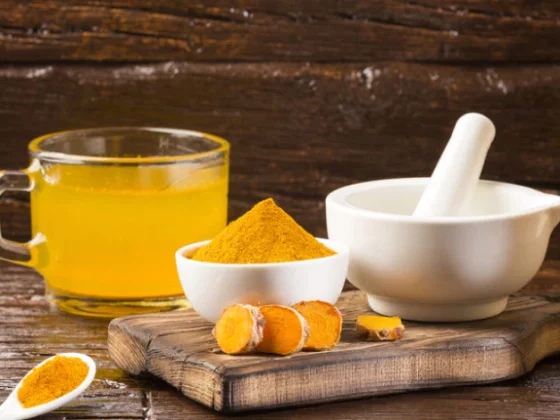As more people become health-conscious, the demand for vegetarian protein sources continues to grow. Consuming plant-based proteins is an excellent way to maintain a healthy diet without relying on animal products or supplements. WellHealthOrganic.com recognizes this need and provides a comprehensive guide on vegetarian protein sources.
The website features various vegan and vegetarian protein options that are not only perfect for plant-based diets but also satisfy those who prefer meat-free meals. Whether you’re looking for soy-free, gluten-free or nut-free options, WellHealthOrganic.com has got you covered. With their extensive list of high-protein foods that include grains, beans, legumes, nuts, and seeds – you can easily incorporate these into your daily meals and achieve optimal health benefits.
Why vegetarian protein sources are important
wellhealthorganic.com: vegetarian-protein-sources, Vegetarian protein sources are important for many reasons. For starters, they provide the necessary amino acids needed to support muscle growth and repair. This is particularly important for individuals who follow a vegetarian or vegan diet and may not consume animal products that contain complete proteins.
Additionally, incorporating vegetarian protein sources into your diet can help reduce your risk of chronic diseases such as heart disease, diabetes, and certain cancers. Many plant-based proteins also come with added benefits such as fiber and antioxidants that promote overall health.
Lastly, choosing vegetarian protein sources over animal-based options can have a positive impact on the environment by reducing greenhouse gas emissions associated with animal agriculture. Overall, incorporating a variety of vegetarian protein sources into your diet can lead to improved health outcomes for both you and the planet.
Benefits of plant-based protein
Plant-based protein is a fantastic alternative to traditional animal-based proteins. Not only are they more environmentally friendly, but they also come with a range of health benefits. One significant benefit of plant-based protein is their high fiber content. Fiber helps regulate digestion and keep you feeling fuller for longer periods, ultimately aiding in weight management.
Furthermore, many plant-based proteins are low in saturated fat and cholesterol, making them much healthier than animal sources. Additionally, studies have linked plant-based diets with lower rates of chronic diseases like heart disease and type 2 diabetes.
Finally, another advantage of using plant-based proteins is the wide variety of options available. From soy products such as tofu or tempeh to beans like chickpeas or lentils, there are plenty of delicious and nutritious options to choose from when incorporating these foods into your diet.
In conclusion, choosing plant-based protein sources over traditional animal sources has numerous benefits for both your health and the environment. With so many delicious options available today, it’s easy to make the switch without sacrificing taste or nutrition!

Top 5 vegetarian protein sources
Protein is a vital nutrient that helps the body build and repair tissues, as well as keep bones, muscles, and skin healthy. For vegetarians who choose not to eat meat, finding sources of protein can be challenging. However, there are plenty of delicious vegetarian protein sources available.
First on our list is tofu. Tofu is an excellent source of protein with about 10 grams per half-cup serving. It’s also low in calories and fat while being high in iron, calcium, and other essential nutrients.
Next up are lentils – they’re packed with fiber and protein (18 grams per cup). Lentils come in many different varieties such as green, red or yellow; all types offer unique flavors for every palate.
Quinoa takes third place on our list – it’s rich in fiber and has all nine essential amino acids making it a complete protein source. One cup of cooked quinoa provides around 8 grams of protein making it perfect for adding to salads or soups.
Fourth on the list are chickpeas which have approximately 15 grams of protein per cup. They’re incredibly versatile- you can add them to salads or mash them up for falafel patties.
Lastly, we have spinach – one cup contains around 5g of protein! As well as being an excellent source of iron for vegetarians who may struggle to meet their daily requirements through food alone; spinach is also loaded with vitamin K which plays a key role in bone health.
How to incorporate them into your diet
One easy way to incorporate vegetarian protein sources into your diet is by replacing meat with plant-based alternatives. For example, try swapping ground beef for lentils in your next taco night or using tofu instead of chicken in your stir fry. Another great option is adding beans to salads, soups, and stews for a protein boost.
In addition to these simple swaps, you can also experiment with incorporating new vegetarian protein sources into your meals. Some options include quinoa, tempeh, and seitan. Quinoa can be used as a base for salads or mixed with vegetables as a side dish. Tempeh and seitan are both versatile proteins that can be grilled or sautéed and added to sandwiches or wraps.
Making small changes to your diet by incorporating more vegetarian protein sources can have significant health benefits while also being delicious and satisfying. By experimenting with different ingredients and recipes, you may find yourself pleasantly surprised at how much you enjoy these plant-based options.
Recipes using vegetarian protein sources
Looking for meat-free protein sources can be challenging, but it doesn’t have to be. There are various plant-based protein options that are not only healthy but also delicious and versatile. Chickpeas, lentils, tofu, seitan, and tempeh are just some of the vegetarian protein sources that you can experiment with to create delicious meals.
Chickpea curry is an excellent example of a tasty recipe using vegetarian protein sources. You can blend chickpeas into hummus or make falafel balls with them. Lentil soup is another nutritious meal choice; you can add different vegetables and spices to make it more flavorful. Tofu stir-fry is also a popular dish that incorporates various veggies and sauces for taste.
If you’re looking to switch up your diet or want to incorporate more plant-based meals into your routine, consider trying out these recipes using vegetarian protein sources. They’ll provide you with the necessary nutrients while still being enjoyable and easy to prepare.
Other health benefits of plant-based eating
Aside from being a great source of protein for vegetarians and vegans, plant-based eating also has numerous health benefits. One of the main advantages is its ability to reduce the risk of chronic diseases such as heart disease, diabetes, and certain types of cancer. This is because plant-based diets are typically low in saturated fats and high in fiber, vitamins, minerals, and antioxidants that help protect against various illnesses.
Another benefit of plant-based eating is better digestion. Since plant foods are rich in fiber, they can promote bowel regularity and prevent constipation while also feeding beneficial gut bacteria. Moreover, studies have found that a diet rich in fruits and vegetables can improve mental health by reducing depression symptoms and improving cognitive function.
Lastly, plant-based eating can be a sustainable way to reduce one’s carbon footprint on the environment. By consuming more whole grains, legumes, fruit & vegetables instead of animal products such as meat or dairy; we can make changes towards healthier living habits while saving our planet at the same time!
Conclusion: Switching to a plant-based diet
Switching to a plant-based diet can have numerous health benefits. Not only is it an ethical choice, but it may also help reduce the risk of chronic diseases such as heart disease, diabetes, and certain types of cancer. Additionally, it can be a great way to increase your intake of essential nutrients like fiber and vitamins.
When transitioning to a plant-based diet, it’s important to ensure you are getting enough protein. Luckily, there are many vegetarian sources of protein available that can easily be incorporated into meals. Some options include legumes like beans and lentils, nuts and seeds like almonds and chia seeds, and soy products like tofu and tempeh.
Overall, making the switch to a plant-based diet requires some effort and planning but can have long-term benefits for both your health and the environment. It may take some time for your taste buds to adjust but with some creativity in the kitchen and knowledge about nutritious food choices, you can enjoy delicious plant-based meals while reaping all the benefits they offer.
Read Also… wellhealthorganic-com-vitamin-e-health-benefits-and-nutritional-sources














